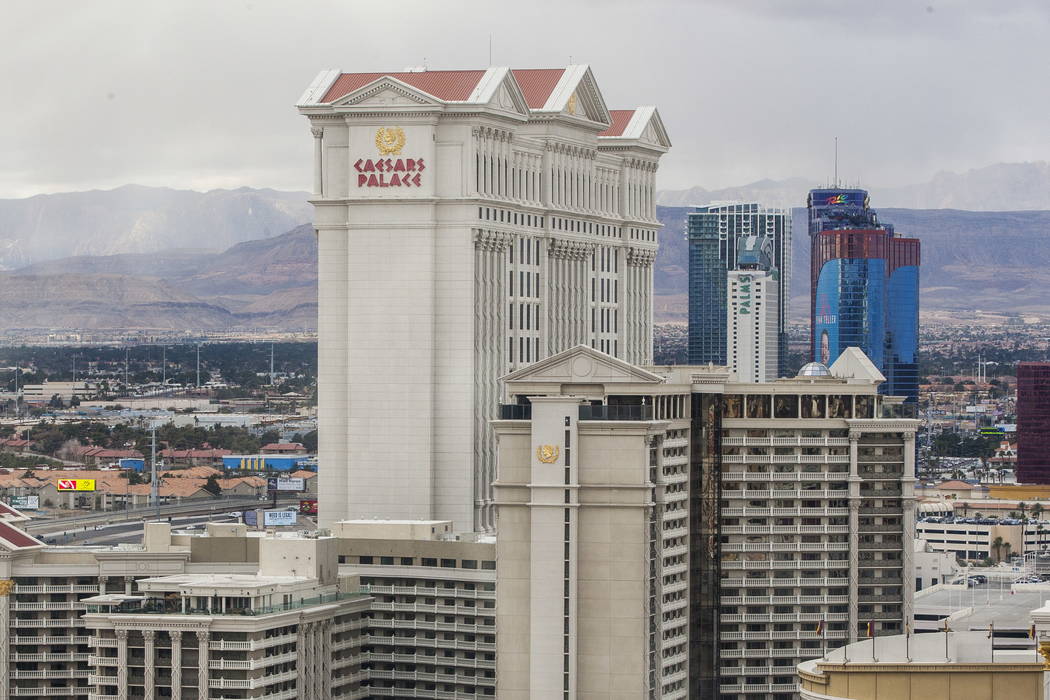Caesars real estate owner raises more money than expected in IPO

VICI, the owner of nearly two dozen Caesars Entertainment Corp. properties, raised more money in an initial public offering of stock than it anticipated amid strong demand.
The Las Vegas-based real estate investment trust sold 60.5 million shares at $20 a piece, raising $1.21 billion, the company said it a statement late Wednesday. The company initially sought to sell 50 million shares between $19 and $21.
VICI also increased the over-allotment option to 9.1 million shares from 7.5 million. That will enable the company to raise an additional $181 million in the IPO.
“There is growing interest in gaming real estate as a real estate asset class worthy of institutional investment,” VICI Chief Executive Officer Ed Pitoniak said in an interview Thursday morning. “It is still a relatively new sector versus so many other well established REIT sectors. We are fortunate to be a point where that interest is growing strongly.”
On their first full day of trading, shares fell $1.11, or 5.05 percent, to close at $20.89. The company trades under the ticker VICI.
VICI was formed as part of the two-year long Caesars bankruptcy resolution. Caesars debt holders received shares of VICI when Caesars exited bankruptcy in October 2017.
The real estate company posted net income of $439 million for the first nine months of 2017 on $649 million in revenue. Adjusted earnings before interest, tax, depreciation and amortization was $544.6 million for the period.
VICI will target net leverage below 5 and 5.5 times its adjusted earnings, Pitoniak said. After the $181 million over-allotment, VICI’s net leverage will be slightly below 5 times.
New REIT Class
VICI is one of three publicly traded REITs focusing on the gaming industry. Gaming and Leisure Properties was spun off from Penn National Gaming in 2013 to create the first REIT focusing on the gaming industry.
MGM followed suit, creating MGM Growth Properties to hold some of its casino real estate. MGM Growth Properties held an initial public offering of stock in 2016, raising $1 billion.
REITs are companies that own income-producing real estate in a range of property sectors, such as commercial, residential, warehouses or a combination. They lease space and collect rents.
They must pay out at least 90 percent of their taxable income to shareholders and generally offer high dividend yields. Most REITs trade on major stock exchanges. Gaming and Leisure shares currently offer a 7 percent dividend yield while MGM Growth Properties offers 6 percent.
VICI leases its 20 casinos, including Caesars Palace and Harrahs, to Caesars to operate. The leases are for an initial 15 years with an option to extend them in incremental, five-year periods.
M&A Boom
The creation of gaming REITs has fundamentally altered casino valuations and accelerated industry takeovers, said Jefferies analyst David Katz. There have been more than 20 industry acquisitions over the past two years exceeding $15 billion.
Casinos can be bid on in tandem by the operating company and the property company, ”which can result in a higher price paid than that which makes sense from an owner-operator,” said Katz in a Jan. 18 industry report.
Gaming and Leisure, MGM Growth Properties and VICI will now all compete to purchase casinos from existing owners and lease them back.
VICI says its advantage is that Caesars has no ownership in the company and no influence on the board or management. MGM owns a controlling stake in MGM Growth Properties.
“Once that is clearly understood to anyone we are talking to, they can be confident that we are not and will not be a direct operating competitor of theirs,” said Pitoniak
In the days leading up to VICI’s IPO, MGM Growth Properties made an unsolicited offer to buy the company in an all-share exchange. VICI rejected the offer.
Contact Todd Prince at tprince@reviewjournal.com or 702-383-0386. Follow @toddprincetv on Twitter.













